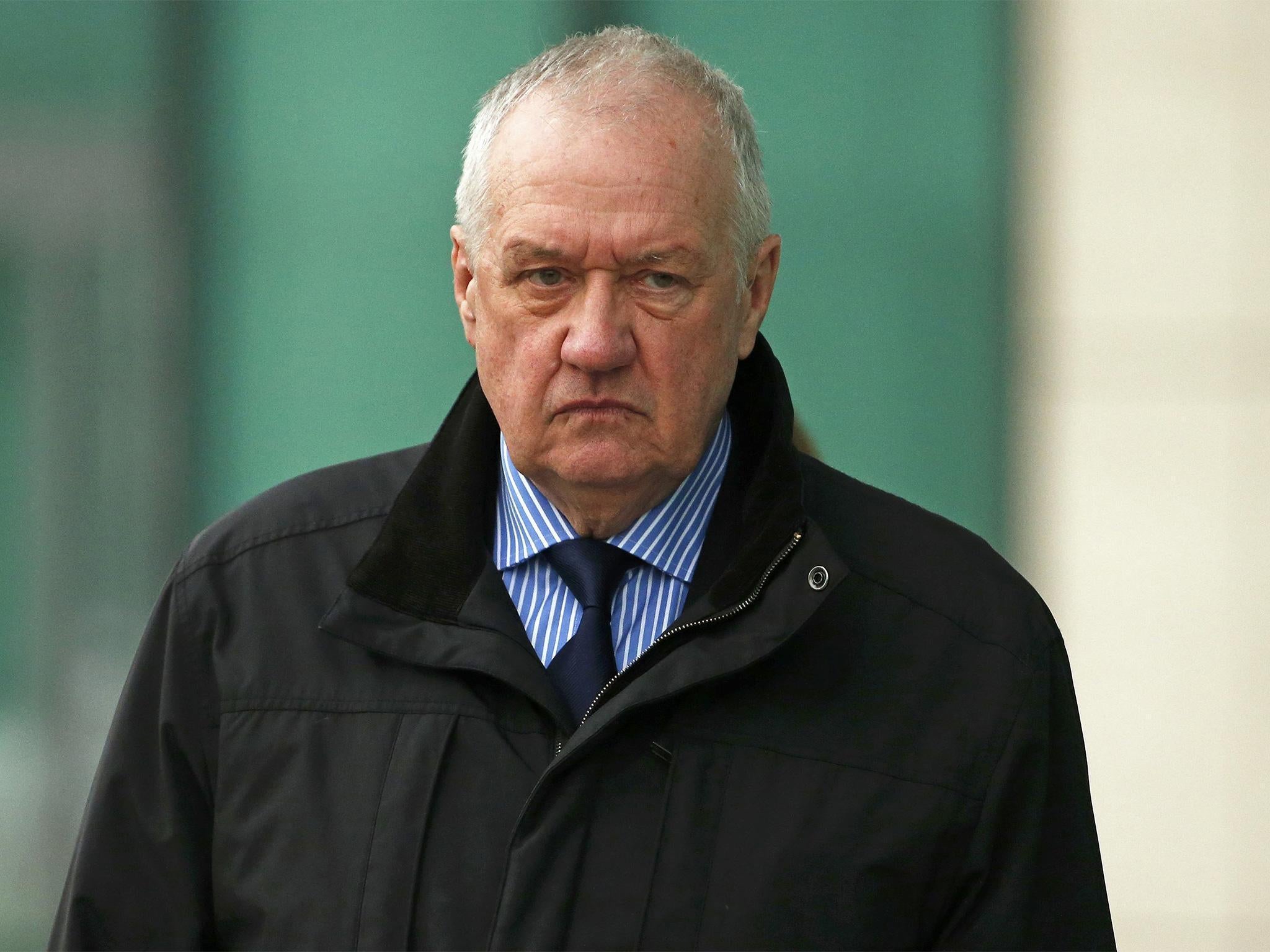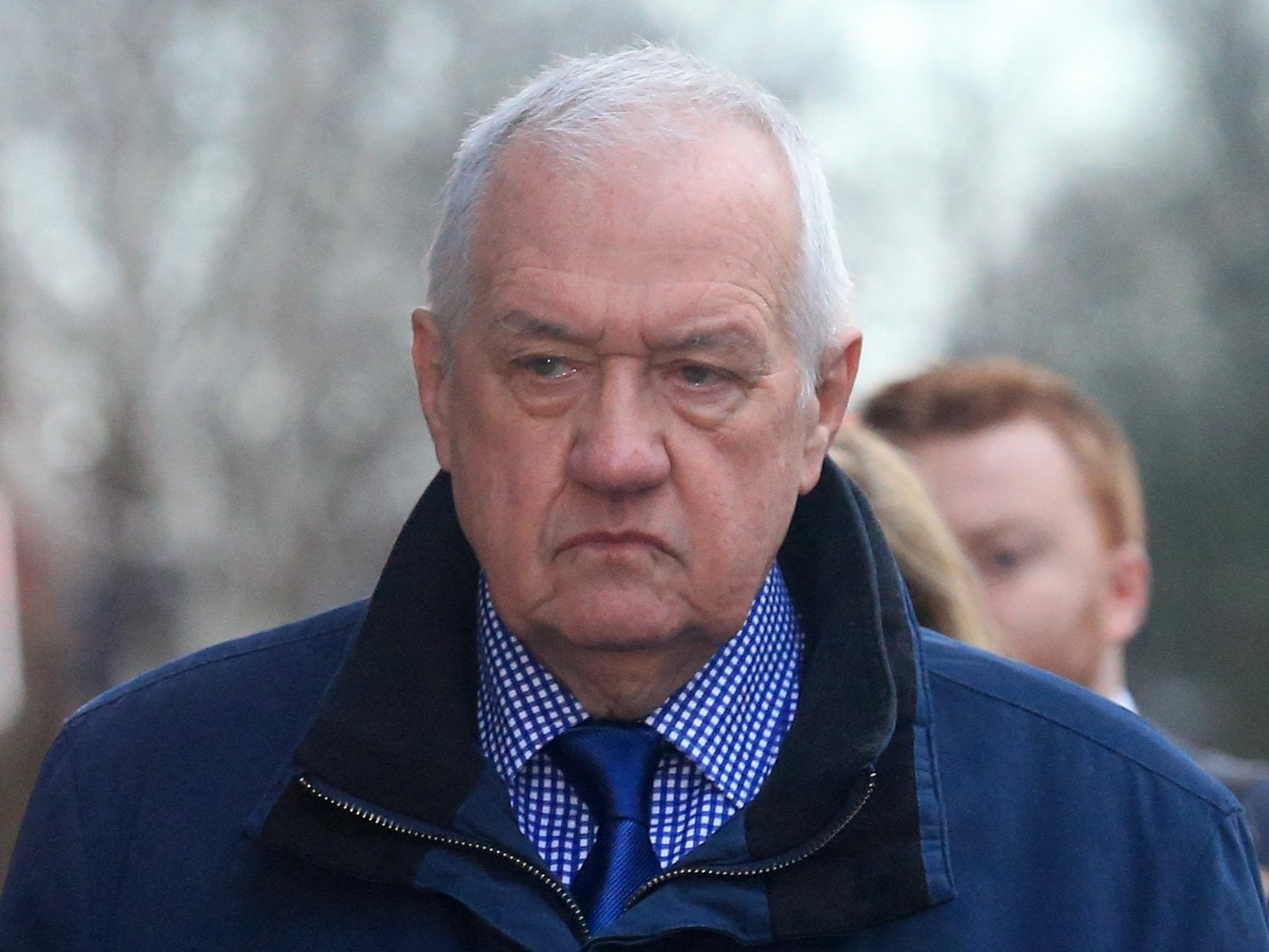Hillsborough trial: David Duckenfield 'unfairly singled out' for manslaughter prosecution, defence claims
Prosecution says match commander's 'extraordinarily bad' series of failings led to fatal crush

David Duckenfield has been “unfairly singled out” for prosecution over the Hillsborough disaster, his defence lawyer has claimed.
The match commander “was not equipped with special powers to anticipate things that everybody else didn’t,” Benjamin Myers QC told a jury at Preston Crown Court.
He added: “It can hardly be fair to judge Mr Duckenfield by different standards from everyone else.
“The prosecution are blaming him for ... events that can’t be attributed to the fault of any persons in particular.
“What happened on 15 April 1989 was brought about by a combination of factors great and small, some with their roots in events years before and some that emerged in the hours and minutes before disaster struck.”
The prosecution had previously told the court that Mr Duckenfield’s “extraordinarily bad” failings as match commander was a substantial cause of the deaths.
Richard Matthews QC said it “required no hindsight” to realise the risk of a fatal crush in fenced pens at the Leppings Lane end of Hillsborough stadium.
Mr Duckenfield did not consider the consequences of an influx of thousands of Liverpool fans down a tunnel into the already overcrowded pens when he ordered a large gate to be opened to ease a separate crush outside the stadium, the court heard.
Prosecutors said he then failed to take action as the disaster was unfolding, with survivors and witnesses recalling how they shouted at police officers for help, and to be let out, but got no repsonse.
Excerpts of statements from officers were read showing that they were operating without orders from Mr Duckenfield, or the police control box, to try to manage crowds at the Leppings Lane end.
Even as the victims were being crushed to death, police communications played to the court suggested that some officers believed the incident to be a pitch invasion and responded accordingly.
When the match was stopped at 3.05pm, police triggered operation support, which was not a safety operation but a “contingency plan to deal with spontaneous disorder”.
Mr Matthews said: “No matter who else could have done better, done more, done things differently, Mr Duckenfield’s failures continued.
“Each flowed from his own decision making and fell squarely within his personal responsibility as match commander.
“Ultimately Mr Duckenfield failed in the most appalling manner to monitor what was happening in pens three and four, and to prevent or avert the inevitable consequence of the flow of many spectators into the central tunnel, crushing the life out of so many people.”
But speaking later on Thursday, Mr Myers told the jury a combination of factors “came together in catastrophic fashion … and to single out David Duckenfield is artificial and unfair”.
The defence lawyer said that the fencing that contributed to the disaster was common at football stadiums in the 1980s and that safety risks that may seem obvious now “were a fact of life in 1989”.
Mr Myers asked the jury to “keep in mind the danger of hindsight, the historical context and the possible unfairness of applying unreasonable standards to Mr Duckenfield from what is expected for others”.
Mr Myers pointed out that the prosecution has accepted that other people are at fault “but they are not accusing them of gross negligence manslaughter”.
He added: “You may be wondering how it can be fair to single out one man for prosecution when there are so many other people at fault – so are we. Looking back now, there may be things that could be done differently or better, and the same can be said for a good many people.”

Mr Myers said his client believes he was not negligent and “did his best”, and that “bad stadium design, bad planning, some aspects of crowd behaviour, some of police behaviour, and genuine human error” contributed to the disaster.
He reminded the jury that Mr Duckenfield is not representing South Yorkshire Police or any other agency, adding: “Our sympathy for others can never be a reason to convict another for events beyond his control or repsonsiblity.”
Mr Duckenfield, now 74, denies manslaughter by gross negligence of 95 victims.
There can be no prosecution over the death of the 96th victim, Tony Bland, as he died more than a year and a day after his injuries were caused.
Graham Mackrell, Sheffield Wednesday’s former club secretary, denies health and safety offences.
The trial continues.
Read our live coverage below:
Please allow a moment for the live blog to load
While the surge of supporters through Gate C was uncontrolled, at Gate A an officer called Sergeant Higgins drew up his own plan without any input from Mr Duckenfield or the control box
"He did not want them rushing in and hurting themselves or officers," Mr Matthews says.
"There was effectively a cordon directing the fans into the north stand. Mr Higgins planned that before asking for the gate to be opened and told his officers that was what he was going to do."
The gate was opened as wide as possible to let the first rush come in, and then shut to let three or four people through at a time. All Liverpool fans coming through Gate A were directed towards the North Stand rather than the West Stand or terrace.
Inspector Bennet, who was standing on a roof above the turnstiles, said it was right to open the gates because of the crush outside, but it was obvious that it had to be done “in a controlled, supervised manner” and the match commanders in the control box should have been managing the consequences
At around 2.54pm, Sergeant Goddard remembers PC Buxton, who was in the police Land Rover with the PA system, coming over the radio saying, "Can we open the gate? Can we consider delaying the kick off?".
Sergeant Goddard is to tell the the jury that without consulting anyone he declined because players were already on the pitch and he believed it to be too late. He said that Mr Duckenfield and Supt Murray heard the exchange and did not intervene
The prosecutor says thatRoger Houldsworth, who was in the club control room, that he told PC Guest at about 2.5 pm or later words to the effect that: "This is not right. The amount of people outside externally...the build-up in the Leppings Lane reservoir area and... what was coming through the turnstiles, there was no way they were going to get them in."
According to Mr Houldsworth, there was then a discussion about whether the kick off would be delayed and they "could see there was going to be trouble when Gate C was opened". There were spaces in the wing terraces, but the fans were not directed to that area.
Sergeant Goddard will tell the jury that from the police control box, cameras showed "that a large number of fans were heading straight for the tunnel" when Gate C was opened.
The officer said he was aware of the pens getting full but "his concentration was on the situation outside"
"It is the prosecution case that it was David Duckenfield, the match commander's duty to consider the consequences of opening the gates; that there was time to have done so even between the first and third request to open the gates; also, that there was sufficient time to make contingency plans for the inner concourse," Mr Matthews says.
"It is also the prosecution case that it was obvious to anyone ordering, permitting or even observing on the cameras in the police control box the opening of Gate C that there would be no room going down the tunnel into the pens and that there was going to be, a serious problem in the central pens 3 and 4."
The jury are being played footage of 2.56pm, which shows the position of 27 people who died in pen 3. They are spread through different parts o f the pen and the crowd is tightly packed and moving.
At 2.58pm, Gate C was closed and the footage shows the pressure immediately outside it had decreased.
Gate A was still open, with people passing through under the supervision of police officers funnelling them to the North Terrace. Gate B was also still open
